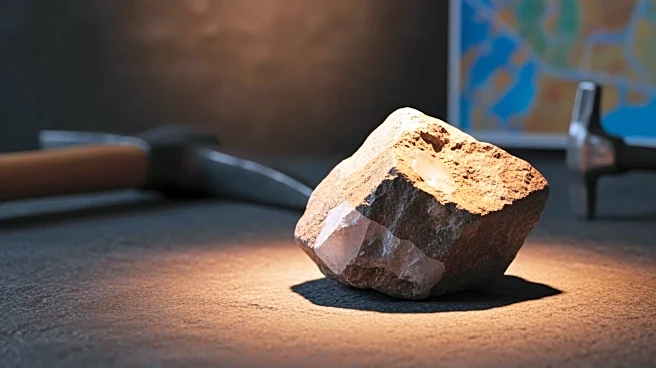Rapid Read • 8 min read
Kilauea volcano on Hawaii's Big Island has erupted again, marking the 31st eruption since December 2024. The eruption began on August 22, 2025, with lava spewing from the summit crater. This ongoing volcanic activity is part of a series of eruptions that have been occurring since late 2024. The Hawaiian Volcano Observatory reports that the eruption is contained within the summit crater, posing no immediate threat to nearby communities. The event has been captured live, allowing viewers worldwide to witness the spectacle through livestreams.
AD
The eruption of Kilauea is significant for both scientific observation and cultural heritage. As one of the world's most active volcanoes, Kilauea provides valuable data for volcanologists studying volcanic behavior and eruption patterns. The live coverage of the eruption allows for real-time observation and analysis, contributing to the scientific understanding of volcanic activity. Culturally, the eruptions hold importance for Native Hawaiians, as Kilauea is considered the home of the goddess Pele. The ongoing volcanic activity provides a living connection to cultural traditions and stories, emphasizing the importance of preserving cultural heritage while engaging with natural phenomena.
The future of Kilauea's current eruption remains uncertain. Scientists continue to monitor the volcano closely, using sensors to detect changes in volcanic activity. These observations can help predict future eruptions and inform safety measures for residents and visitors. The eruption could continue if the magma supply remains steady, or it might cease if the supply diminishes. Visitors are advised to stay informed through official alerts and to exercise caution when visiting the park, as volcanic gases and unstable terrain pose risks.
Beyond the immediate spectacle, Kilauea's eruptions highlight the intersection of natural phenomena and cultural heritage. The eruptions are not only geological events but also cultural ones, deeply embedded in the traditions and stories of Native Hawaiians. This underscores the importance of respecting and preserving cultural narratives while engaging with natural wonders. Additionally, the eruptions prompt discussions on environmental management and the balance between tourism and conservation.
AD
More Stories You Might Enjoy












